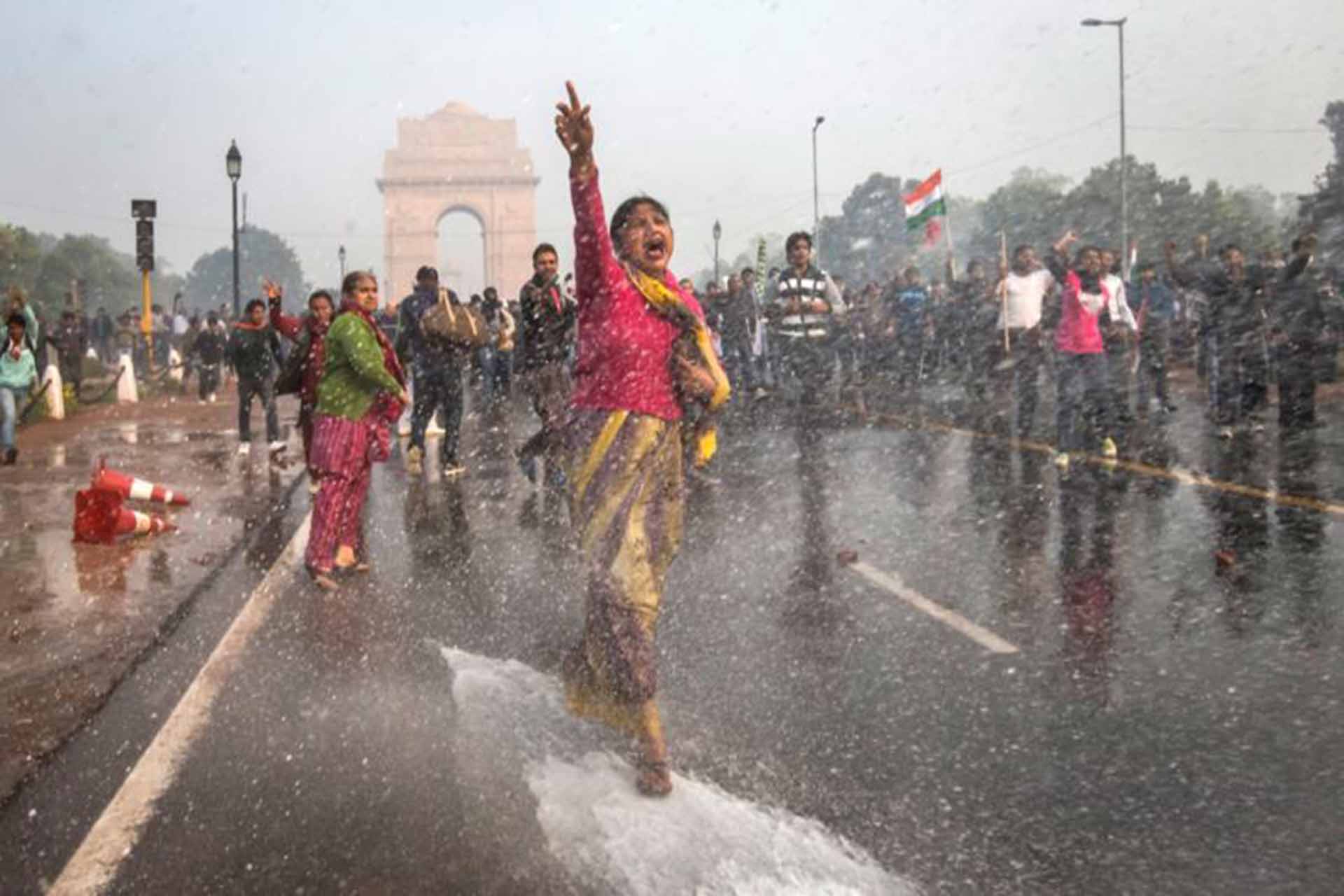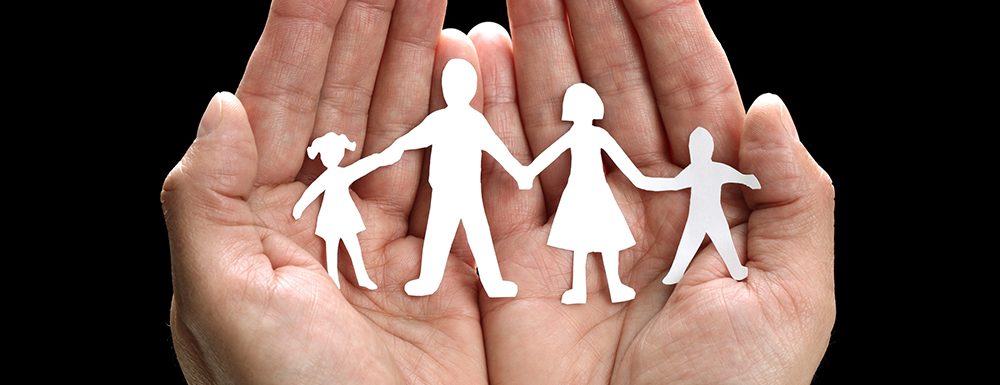
It’s 10am in London, armed with a Starbucks in one hand, I wrestle through a crowd of Spanish school kids as I make my way into the city, nervously excited to meet a woman whose film moved me so greatly I decided to spend my summer working on social impact issues. Unless you’ve been living under a rock for the past six months, you are likely to have come across the documentary film India’s Daughter and the huge support and criticism borne out of its release. Meeting in Holland Park, the quaintest part of London I’ve ever been to, I sit down with Leslee Udwin, the director and producer of this thought-provoking film. With a coffee in one hand, cigarette in the other, Leslee talks about how making this film changed the trajectory of her life, much like it did for hundreds across the globe, and for me too.
Leslee Udwin started off life as an actor but moved towards filmmaking, wanting to shape the narrative of film. Her first venture as a film producer was ‘Who Bombed Birmingham?’. It was a film that directly led to the release of the Birmingham Six, six innocent Irishmen who became a symbol of one of the biggest miscarriages of justice in our country. They were released after 17 years of wrongful imprisonment. Udwin shared how she found there to be very strong parallels in the making and release of that film in the UK and what she recently experienced in India with India’s Daughter.
Now, Udwin describes herself as a campaigner. She shares why India’s Daughter was the film that compelled her to drive change, how global citizenship is at the heart of a just and equal society, and why education is the only solution. Having spent 31 hours with 7 rapists enquiring into their mindsets, she feels she is very well placed to make change happen. Udwin kindly shares more on how she is doing this.
“All of these symptoms that we are treating like nurses just bandaging the wounds, emanate from one disease and that disease is gender inequality. We need to become surgeons, we need to root out the cause so that the world can become a safe, equal and just place for half of its population.”
DC: How do we change mindsets after years and years of gender bias embedded into society?
LU: Quite clearly we need to change the mindsets. There is only one way to change mindsets and that is education – there is no other way. We know from neuroscience there are very circumscribed windows during which we can change attitude and character. Between the age of 3 and 5 a child’s character is formed. There is also, according to the latest thinking, another window, when a child is going through puberty. Those are our only real opportunities to change mindsets. Sadly, the kind of education that is required for this is not in place at schools right now. So we have to focus on the next generation…and urgently.
DC: What insights did you gain from your experience making India’s Daughter?
LU: The whole process of making the film for me, was characterised by a set of reversal of expectations. First of all, I believed I was going to meet with monsters and psychopaths and that my enquiry was into the psychopathy of rapists. I was completely shocked to find, that not one of the single rapists I met, one of which raped a 5 year old girl, were abnormal to the degree that I expected they would be. They were ordinary human beings. What I understood from my interaction with them, was they were programmed by their society and their experiences, which taught them that women had lesser value. Can we really blame them for going that one step further, when we are responsible for indoctrinating those attitudes within them?
The second was this, among the rapists I interviewed, there were some who spent a considerable amount of time in prison. I was absolutely sure I would find some sense of remorse somewhere, there was none. There was not a seconds remorse from these men. On the contrary, there was a sense of outrage and a feeling of unfairness, especially by Mukesh, one of the rapists we interviewed for India’s Daughter. He said, “why are they making an example of us?…everybody is doing it.” It became clear they didn’t feel remorse, because, at the core, they didn’t think they had done anything wrong.
Thirdly, I assumed that a lack of education was a common factor to these rapists. But then I sat with their lawyers. There was absolute shock that these educated men were shared even more misogynistic views and attitudes towards women than the rapists. So that got me thinking about what are we teaching our children. More significantly, what have we not been teaching them? The insight was that it’s not the access to education that is the problem, it’s the quality of education. In examining what we teach our children, we find that we teach them numeracy and literacy, but nowhere do we systematically teach them moral values. We don’t teach them respect, equality, gender sensitisation. We completely neglect their spiritual and holistic education, we don’t give them life skills. The clear conclusion for me was that the only way to change the world meaningfully for those who suffer in it is to compulsory educate children moral values.
When I had this realisation I got on a plane and met with the United Nations Human Rights Office and I’m now advising them on an initiative which we are calling the Equality Studies Global Initiative (ESGI). We’re about ten weeks old and I am now meeting with education ministers around the world, I already have 8 countries that have endorsed this initiative (Botswana, Malawi, Kenya, Kiribati, Tuvalu, Malta, Sri Lanka and Lisutu). Certainly the education ministers I have spoken to so far understand the urgency of the situation and creating global citizenship. By the end of this year, we hope to gather the committee and we are also fundraising like crazy as this is a very ambitious undertaking.
DC: Have any countries rejected the proposed ESGI?
LU: One has to be optimistic. I can’t imagine there is a single country in this world that would reject this. Why would they? Are they not interested in empowering their citizens, which will impact on their national budgets and create prosperity and development in their country?
DC: What was India’s position on the proposed initiative?
LU: Well, they refused to speak to me about it. I was at the Bahamas for the Commonwealth Education Conference, I approached Miss Irani, the Education Minister of India, three times and asked her to speak to me but she wouldn’t. She made it very clear that many people were angry about the film and she would choose who she speaks to, which did not include me.
DC: What has been the response from young men in India following the India’s Daughter release?
LU: I have to say the majority of emails and tweets are positive, particularly emails as they are more private. There does seem to be a real atmosphere of fear in India and even our prominent supporters in India will only go so far. I think that is truly sad, particularly sad for me personally because what took me there was the sense of admiration and gratitude to those amazing, inspiring and tenacious individuals that spoke out for women’s rights in the wake of this gang rape. Where are those voices now? Most NRIs are very, very supportive of the film but older men do tend to resist the message and still feel the film is giving a platform to the rapists. It seems to me that those who actually watch this film let go of any resistance they originally felt so, for me, it’s very significant that the Indian government banned the film without seeing it.
Part 2 of this blog will be up next week so watch this space. Stay connected to Leslee and her team’s journey through her website http://indiasdaughter.com/home/
Leslee and the ESGI team are currently looking for passionate and driven volunteers to help propel their initiative forward, please get in touch at [email protected].
Watch India’s Daughter here.


